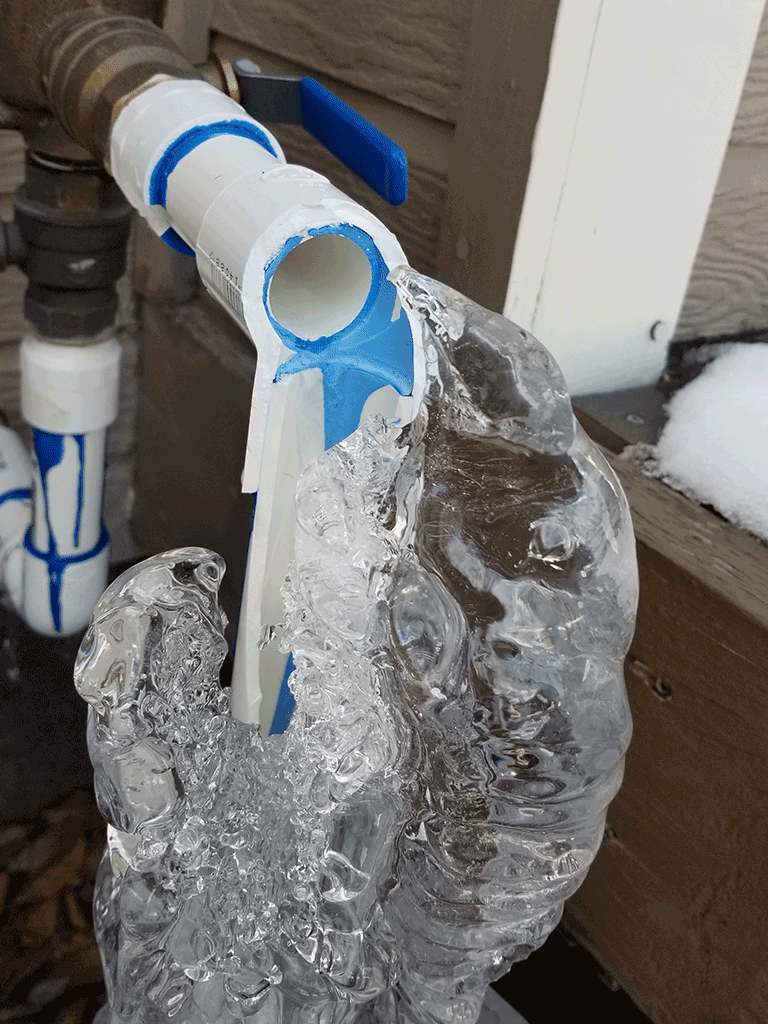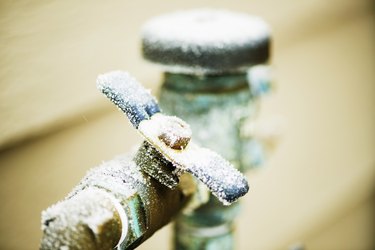Avoiding Your Pipes from Freezing: Top Tips
Avoiding Your Pipes from Freezing: Top Tips
Blog Article
Are you trying to find advise concerning Preventing and dealing with frozen pipes?

Winter can damage your pipes, especially by freezing pipes. Below's exactly how to stop it from happening and what to do if it does.
Introduction
As temperature levels decline, the danger of icy pipelines boosts, possibly causing costly repairs and water damage. Comprehending exactly how to prevent icy pipelines is essential for property owners in cold environments.
Prevention Tips
Shielding susceptible pipelines
Wrap pipes in insulation sleeves or use warmth tape to protect them from freezing temperatures. Focus on pipes in unheated or outside locations of the home.
Home heating strategies
Maintain indoor rooms properly warmed, especially areas with plumbing. Open cabinet doors to allow warm air to circulate around pipelines under sinks.
Just how to recognize icy pipelines
Search for lowered water circulation from faucets, unusual smells or sounds from pipes, and visible frost on revealed pipelines.
Long-Term Solutions
Structural adjustments
Consider rerouting pipelines away from exterior wall surfaces or unheated areas. Add added insulation to attics, basements, and crawl spaces.
Updating insulation
Buy high-grade insulation for pipelines, attics, and wall surfaces. Correct insulation assists maintain constant temperature levels and lowers the danger of frozen pipes.
Safeguarding Exterior Plumbing
Yard hoses and exterior faucets
Disconnect and drain pipes garden tubes before winter. Set up frost-proof faucets or cover outdoor taps with insulated caps.
Understanding Frozen Pipelines
What causes pipes to ice up?
Pipelines freeze when revealed to temperatures below 32 ° F (0 ° C) for expanded durations. As water inside the pipelines ices up, it expands, putting pressure on the pipe wall surfaces and potentially causing them to rupture.
Dangers and problems
Icy pipelines can result in water system disturbances, home damage, and costly fixings. Ruptured pipelines can flood homes and trigger comprehensive structural damage.
Signs of Frozen Pipeline
Determining frozen pipelines early can stop them from breaking.
What to Do If Your Pipelines Freeze
Immediate actions to take
If you suspect icy pipes, maintain faucets open up to ease pressure as the ice melts. Use a hairdryer or towels soaked in hot water to thaw pipes slowly.
Conclusion
Avoiding frozen pipelines needs positive measures and fast actions. By recognizing the reasons, indicators, and preventive measures, property owners can safeguard their pipes during cold weather.
Helpful Tips to Prevent Frozen Pipes this Winter
UNDERSTANDING THE BASICS: WHY PIPES FREEZE AND WHY IT’S A PROBLEM
Water freezing inside pipes is common during the winter months, but understanding why pipes freeze, and the potential problems it can cause is crucial in preventing such incidents. This section will delve into the basics of why pipes freeze and the associated problems that may arise.
THE SCIENCE BEHIND FROZEN PIPES
When water reaches freezing temperatures, it undergoes a physical transformation and solidifies into ice. This expansion of water as it freezes is the primary reason pipes can burst. As the water inside the pipe freezes, it expands, creating immense pressure on the walls. If the pressure becomes too great, the pipe can crack or rupture, leading to leaks and water damage.
FACTORS THAT CONTRIBUTE TO PIPE FREEZING
Low Temperatures: Extremely cold weather, especially below freezing, increases the risk of pipes freezing. Uninsulated or Poorly Insulated Pipes: Pipes located in unheated areas, such as basements, crawl spaces, or attics, are more prone to freezing. Insufficient insulation or lack of insulation altogether exacerbates the problem. Exterior Wall Exposure: Pipes running along exterior walls are susceptible to freezing as they encounter colder temperatures outside. Lack of Heating or Temperature Regulation: Inadequate heating or inconsistent temperature control in your home can contribute to frozen pipes. PROBLEMS CAUSED BY FROZEN PIPES
- Pipe Bursting: As mentioned earlier, the expansion of water as it freezes can cause pipes to burst, resulting in significant water damage.
- Water Damage: When pipes burst, it can lead to flooding and water damage to your property, including walls, ceilings, flooring, and personal belongings.
- Structural Damage: Prolonged exposure to water from burst pipes can compromise the structural integrity of your home, leading to costly repairs.
- Mold and Mildew Growth: Excess moisture from water damage can create a favorable environment for mold and mildew growth, posing health risks to occupants.
- Disrupted Water Supply: Frozen pipes can also result in a complete or partial loss of water supply until the issue is resolved.
WHY CERTAIN PIPES ARE MORE PRONE TO FREEZING
- Location: Pipes located in unheated or poorly insulated areas, such as basements, crawl spaces, attics, or exterior walls, are at higher risk of freezing.
- Exterior Pipes: Outdoor pipes, such as those used for irrigation or exposed plumbing, are particularly vulnerable to freezing as they are directly exposed to the elements.
- Supply Lines: Pipes that carry water from the main water supply into your home, including the main water line, are critical to protect as freezing in these lines can affect your entire plumbing system.
- Underground Pipes: Pipes buried underground, such as those connected to sprinkler systems or outdoor faucets, can be susceptible to freezing if not properly insulated.
https://busybusy.com/blog/helpful-tips-to-prevent-frozen-pipes-this-winter/

Hopefully you enjoyed reading our excerpt about Winter Plumbing Precautions: Preventing Frozen Pipes. Thank you for finding the time to browse our content. Are you aware of another individual who is sincerely interested in Winter Plumbing Precautions: Preventing Frozen Pipes? Do not hesitate to share it. I love reading our article about 6 Ways to Prevent Frozen Pipes.
Go Deal Now Report this page